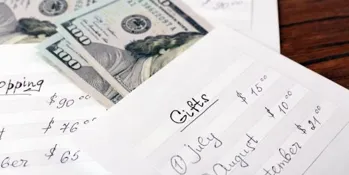- Quick Summary
- You're Not Using a Monthly Budget
- You're Not Prioritizing The Right Things
- You Have Poor Shopping Habits
- You're Not Facing Your Credit Card Debt
- You're Living Beyond Your Means
- You Don't Have an Emergency Fund
- You Don't Have Any Investments
- You're Increasing Your Spending When Your Income Increases
- You're Not Borrowing the Absolute Minimum Needed
- You're Not Good at Understanding Tax Breaks
- Conclusion

- Quick Summary
- You're Not Using a Monthly Budget
- You're Not Prioritizing The Right Things
- You Have Poor Shopping Habits
- You're Not Facing Your Credit Card Debt
- You're Living Beyond Your Means
- You Don't Have an Emergency Fund
- You Don't Have Any Investments
- You're Increasing Your Spending When Your Income Increases
- You're Not Borrowing the Absolute Minimum Needed
- You're Not Good at Understanding Tax Breaks
- Conclusion
Just because you don’t make a lot of money, doesn’t mean you have to be broke. Or maybe you do earn a good salary and you’re still broke. You might not be using your money wisely. Here are ten bad money habits that will keep you broke forever, leading to debt, financial instability, and an inability to save money.
1. You're Not Using a Monthly Budget
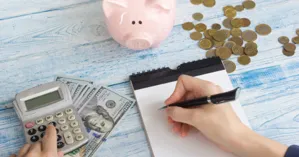
Regardless of your income, a budget that you stick to, will lead you to financial success. Tracking expenses through your bank account is crucial to maintaining a budget. Not having a budget is like taking a journey without GPS, it's arguably one of the biggest bad money habits. You just won’t get to your destination. And you’ll always be broke if you don’t have a budget.
2. You're Not Prioritizing The Right Things

What’s more important to you, buying that coffee from a coffee shop every day and going out to dinner, or upgrading your home. You need to prioritize where you spend your money. Be clear about your goals and priorities and make sure you review these periodically.
3. You Have Poor Shopping Habits

Don’t spend more money to save. Don't shop when you're hungry or bored. Don't buy the first thing you see, instead shop around for a better price. Don't chase trends. Do you need that new iPhone? Change your shopping habits and you'll save money.
4. You're Not Facing Your Credit Card Debt
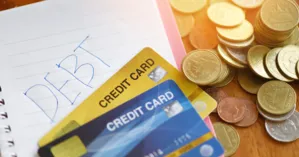
Don’t ignore paying off your debt. In other words, if credit card debt becomes too big, it will quickly grow due to high interest rates and spiral more out of control if you don’t do something about it. Make a plan or try consolidating your debt and paying it off. If you get a hold of your debt, you lessen the risk of losing it all.
5. You're Living Beyond Your Means

A fast track to staying broke is living beyond your means, it also prohibits you from ever getting to financial freedom. You don’t need that expensive, large SUV. You also don’t need that $2,000 computer when an $800 one will meet your needs. Don’t go out every night because your friends do. You’ll run up that credit card and find yourself deeper in debt. Live within your means. Living within your means is crucial for achieving financial freedom.
6. You Don't Have an Emergency Fund
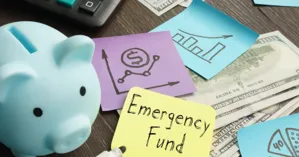
What if you lose your job, you have unforeseen medical expenses or a pandemic hits? These are things no one ever thought would happen, but they did. Have an emergency fund that will pay for the vehicle breakdown or that hospital bill. The pandemic taught us that anything can happen, so be prepared.
Having an emergency fund is a key step towards achieving financial security and helps cover your unexpected expenses.
7. You Don't Have Any Investments

Once you have savings, meet with a financial advisor and start investing. A financial investor can help you bild good money habits and also help you achieve financial independence sooner. Many millionaires started poor but invested what they had. Investing is the only way to build wealth, so make your money work for you.
Investing can also help generate passive income through stocks, real estate, and side hustles, allowing you to build wealth over time.
8. You're Increasing Your Spending When Your Income Increases
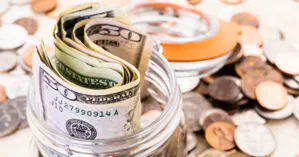
Increasing your spending after you get that raise or more income is called lifestyle inflation. Most people start buying luxuries when they start making more money. Spending more once in a while is okay, but making it a habit to buy new clothes, new cars, or a bigger house can cause you to go broke. Instead, save the excess income and invest. Disciplined spending and saving can significantly improve your financial future.
9. You're Not Borrowing the Absolute Minimum Needed

Many people will borrow the maximum amount. For instance, if you apply for a loan or line of credit, the lender will try to convince you to borrow the maximum; don't do it. When you have it, you'll spend it and find yourself more in debt. Make a budget for what you want to do with the money and only borrow what you need.
10. You're Not Good at Understanding Tax Breaks
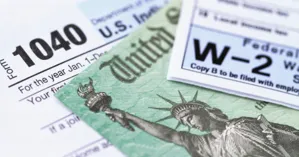
You must pay taxes, but you can limit your taxable income. Starting retirement savings early through accounts like a 401(k) plan can provide significant tax advantages. A 401(k) plan will help with that. Contributions are tax-free, so it lowers your taxable income. If you have a business, run it through an LLC or S corporation to reduce your self-employment tax. Talk to an accountant instead of doing your own taxes to see what benefits you can reap.
Don’t neglect your financial life. You’ll never have money if you just spend without thinking. Addressing bad money habits is crucial to improving your financial situation. Don’t be afraid to hire experts to help you. Financial advisors and accountants can keep you on the financial straight and narrow.



